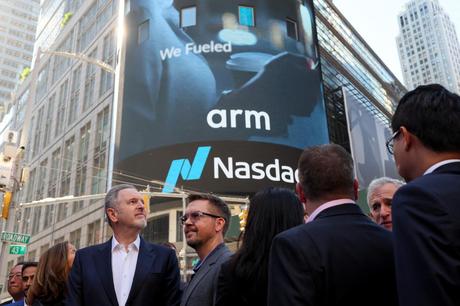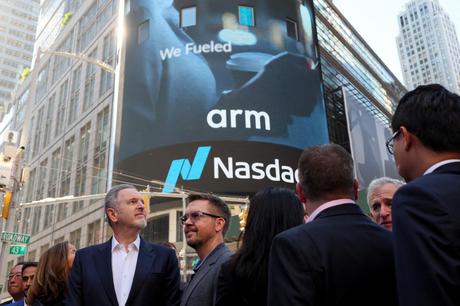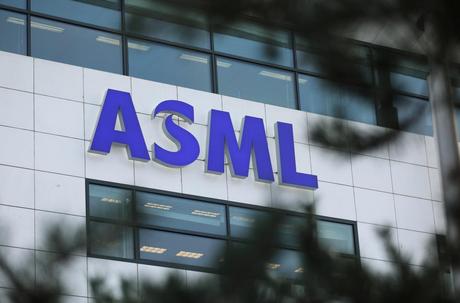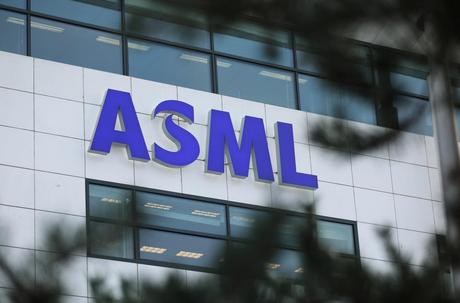Semiconductors and chips emerged as a major talking point for businesses in 2023, with the rise of artificial intelligence (AI) and what appeared to be the end of a long-term supply chain shortage.
Covid-19 caused a global halt in supply chains for a variety of computer components, and a surge in demand for personal computers as people were stuck at home.
Chip shortages affected a range of industries, including cars, computers and gaming. By April 2021, Broadcom's semiconductor lead times had increased to 22.2 weeks, up from 12.2 weeks in February 2020.
By 2022, chips were considered so strategically important that the US government passed the CHIPS Act, authorizing around $280 billion (£222.7 billion) in new funding to boost domestic semiconductor research and manufacturing in the United States , of which it appropriates $52.7 billion.
Read more: Why you could pay more tax in 2024 - and five ways to avoid itHere are the chip-related companies that have captured investor interest through 2024.
Nvidia (NVDA)
Intelligence computing company Nvidia was top of the pile when it came to Google (GOOG) search rankings for chipmakers. It had a banner year in 2023, with its stock more than tripling year-over-year as of Dec. 11.
This was partly due to the launch of new products and the rise of AI, which brought revenue for the third quarter ended in October to $18.1 billion. Profits rose almost tenfold to $9.2 billion and the market value now exceeds $1 trillion.
Looking ahead, Nvidia is ramping up production of a highly sought-after chip, the H100, that has been in short supply. The company forecast revenue of about $20 billion for the current quarter, well above average analyst estimates of just under $18 billion.
"We have increased supply significantly each quarter this year to meet strong demand, and we expect to continue to do so next year," Nvidia Chief Financial Officer Colette Kress said on a conference call with analysts in November.
The story continues
Advanced Micro Devices (AMD) has emerged as a challenger to heavyweight Nvidia, recently saying it expects AI growth to increase its total addressable market to $400 billion by 2027.
Recent deals and product releases mean it now counts Meta Platforms (META) and Microsoft (MSFT) among the customers for its Instinct MI300X chip.
Although its share price has more than doubled in the past year, from about $64 to $133, the country still faces the potential prospect of being hit by the embargo on US chip trade with China.
Micron (MU)
Memory chip maker Micron is one of only three companies that make more than 90% of the world's dynamic Random Access Memory (DRAM) chips. The others are Samsung (BC94.L) and SK Hynix, both of which are headquartered in South Korea. That means Idaho-based Micron is the only manufacturer in the US.
While it has also had a banner year, the risk of a China ban is also weighing heavily on companies' minds, with about a quarter of Micron's revenue coming from the economic powerhouse. CEO Sanjay Mehrotra previously said that about half of sales are at risk.
Intel watchers will be looking to the end of 2024 to see if it can really close the gap with its foreign rivals in 2nm chips - a type of technology that could power the next generation of smartphones, data centers and AI.
The company is calling its new chip the 18A Node and is reportedly testing it at tech conferences, with an eye on production starting in late 2024. This release date could make it the first chipmaker to integrate it into next-generation technology.
Even without this message, the company's stock price had risen from $26.70 per share in early 2023 to $42.7 per share in December.


Arm was one of the most anticipated IPOs of 2023, but has had a rocky start since its debut. This was partly due to analysts questioning the company's value as it grappled with uncertainty over how to recognize new accounting rules for revenue from major licensing deals.
The company has said it also wants to expand beyond its core products into other areas such as data center servers and personal computer chips.
ASE Technology (ASX)
Taiwanese company ASE has also seen significant share price growth over the past year, despite slower inventory depletion due to weak mid-year market demand.
Continued macroeconomic constraints and a shift in consumer spending are also expected to have created headwinds.
The company has actively pursued several routes to reduce costs, including expanding its automation efforts. Due to the higher energy tariffs imposed by the Taiwanese government, energy costs are expected to have increased sequentially.
TSMC (TSM)
TSMC dominates the global market in processors and has unveiled test results for its 'N2' chip - or 2 nanometer - prototypes to some of its biggest customers, including Apple (AAPL) and Nvidia, the Financial Times reported. TSMC had offered the new technology at a discount in an effort to attract large customers, sources said.
Taiwan-based TSMC's revenue is estimated to decline 4.7% year-on-year, according to Zachs analysts. For the current and next budget years, estimates of $66.5 billion and $80.5 billion indicate changes of -12.4% and +21.1%, respectively.


Chip producer ASML is also struggling with an industry slowdown and the trade ban with China. December saw a management change at the highest level, which could mean hope for the future. CEO Peter Wennink will step down in April to make way for Christophe Fouquet, a chip industry veteran who is currently Chief Business Officer.
ASML machines are crucial for the production of advanced chips at manufacturers such as Taiwan Semiconductor Manufacturing Company (2330.TW) and Samsung Electronics
The shares have risen by almost 14% in the past year, valuing the Veldhoven company at approximately € 250 billion.
Broadcom (AVGO)
Broadcom shares have been on the rise in recent months, following several endorsements from analysts. Citi recently gave the stock a buy rating, which has risen more than 80% this year.
The company expects a significant windfall from the increased processing power needed for AI, despite slowing sales and macro concerns.
